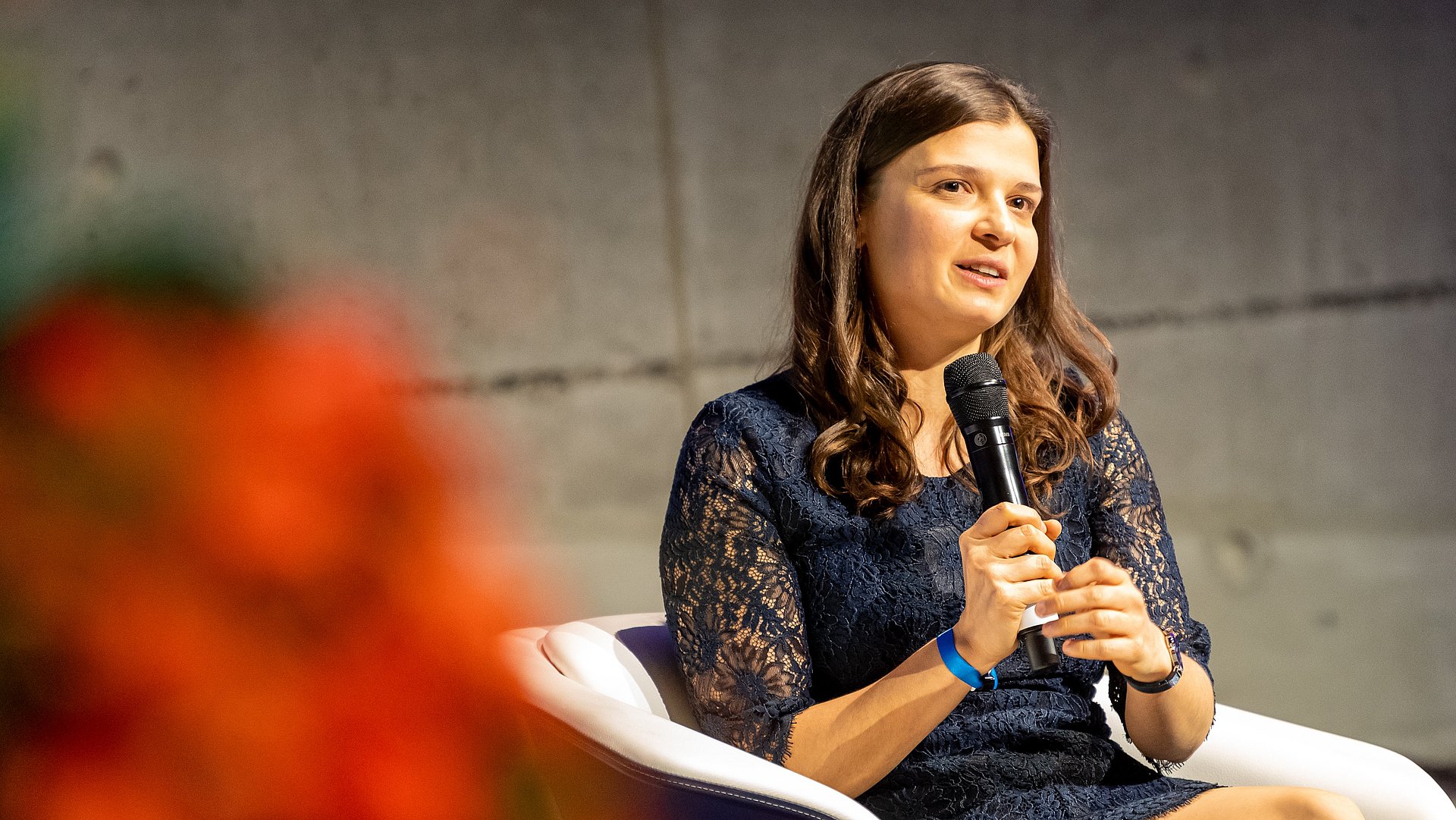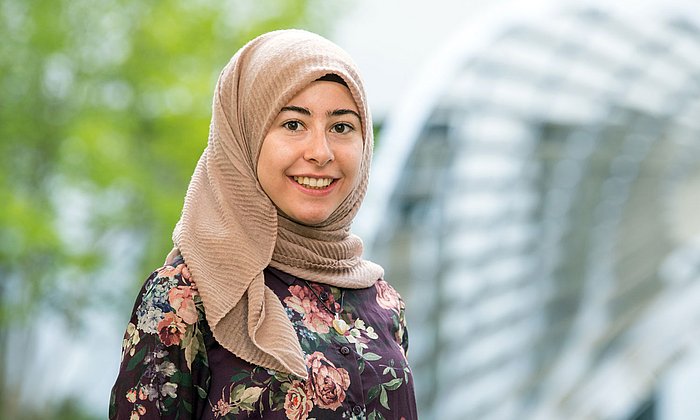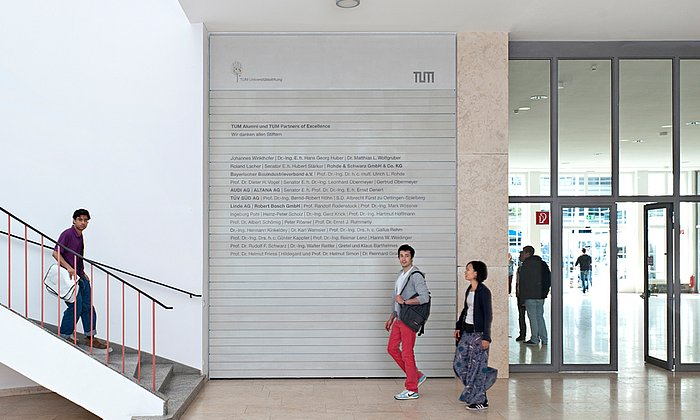Deutschlandstipendium program marks 10th anniversary with new record
Scholarships for 836 students

Without the scholarship, Bianca Monzer would probably not be at the same stage of her career: the TUM graduate has completed the management training program with a major car manufacturer and is now a project coordinator with the same company. She credits her Deutschlandstipendium mentor, Hartmut Hoffmann, Professor emeritus of Metal Forming and Casting at TUM, for some sound advice: while she was still studying, he encouraged her to seek work experience abroad. This enabled her to gain the cross-cultural skills needed for her current role.
New record in the anniversary year
Bianca Monzer’s story shows the value – above and beyond financial support – of the exchange of ideas that represent an integral part of the Deutschlandstipendium program. “The sponsors are inspired by the young people who in turn benefit from the experience of those who have already achieved success in their careers – just like in a family,” said TUM President Thomas F. Hofmann at this year’s event in January (watch the event [German]).
836 scholarships were handed out during the current funding year – a new record. Over the past 10 years, the total has exceeded 5,900 scholarships, with funding provided by more than 700 sponsors, including companies, private individuals, foundations and associations.
Importance of social factors
“The Deutschlandstipendium was the only scholarship program where I had the sense: I’m the student they have in mind,” says Bianca Monzer, recalling her search for the right kind of support during her second semester. “Good grades, non-German roots, parents who didn’t go to university, non-standard path to secondary school diploma – the selection criteria for this scholarship placed value on things that I could relate to. So I applied,” said Monzer at the recent Deutschlandstipendium celebration.
After arriving in Germany from Romania at the age of 16, without a word of German, she blazed an impressive trail through the education system, with a change of schools almost every year. Initially placed in the non-academic school stream, she quickly earned an advanced secondary school diploma. Next she enrolled for advanced courses leading to a university admission certificate. She never lost sight of her ultimate goal: to study at university. The recognition of wide-ranging achievements like these, including volunteer commitments, is one of the priorities of the Deutschlandstipendium program.
A “big fan” of the scholarship
“If the Deutschlandstipendium didn’t exist, one would have to invent it,” says Maria Thon, the managing director of the BayWa Foundation, which has supported the program from the beginning. BayWa is now funding 150 scholarships at TUM. As a “big fan”, Thon believes in every part of the program: “The financial support, the networks and cooperative relationships, and – very important to me – the emphasis on other factors besides good grades. Volunteer commitments also make a difference.”
Thon is quick to agree with Susanne Herold, chairwoman of the advisory board of the DELO-Herold Foundation, who also supports the program, on another positive aspect: corporate sponsors have the opportunity to present themselves to the talents of the future and possibly get them interested in employment after graduating. Even more important, however, is the exchange of ideas with the young people.
Next round of applications to begin in June
A word that quickly comes to mind for many scholarship winners: gratitude. This is seen especially in the many former winners now helping to fund scholarships themselves, either alone or with the TUM Deutschlandstipendium alumni association that funds scholarships with contributions from alumni and even current recipients. The collection taken up at this year’s celebration brought in around 900 euros. In addition, the TUM University Foundation was able to create four new scholarships from the proceeds of its own anniversary campaign. Bianca Monzer also wants to get involved as a sponsor next year and hopes to finance a scholarship with her partner.
In view of the strong response, TUM president Hofmann is looking ahead with optimism: “Perhaps we can finally top 1000 scholarships in next year’s funding round.”
- Achievement can mean many things. Apart from obtaining certificates, it can also be a matter of commitment to society. That is why the Deutschlandstipendium supports people who get involved, with regard to academic performance, social commitment, and other social criteria.
- Scholarship holders receive 300 euros per month for one year. Half of the money is provided by the federal government, which launched the program. The universities themselves obtain the other half from companies, foundations and private individuals.
- In the 10 years since the start of the Deutschlandstipendium, TUM has awarded over 5,900 scholarships, including more than 830 in the 2021/2022 funding year.
- TUM students can apply from June 20 until July 3 2022. Applications from secondary school graduates will also be accepted from July 18 until July 31 2022. There are no age restrictions. How to apply
Contacts to this article:
Deutschlandstipendium for (prospective) students:
Phone: +49 89 289-28064, -28067
Consultation hour (by telephone): Monday to friday 9 – 12 a.m. (Please note: Office hours are cancelled until further notice)
deutschlandstipendium(at)tum.de
for sponsors:
Susanne Birkeneder
Phone: +49 89 289-25466
susanne.birkeneder(at)tum.de


![[Translate to en:] Screenshot Deutschlandstipendium Selfie Video [Translate to en:] Screenshot Deutschlandstipendium Selfie Video](/fileadmin/_processed_/3/e/csm_Screenshot-deutschlandstipendium-selfie-video_022c2da7c7.jpg)
